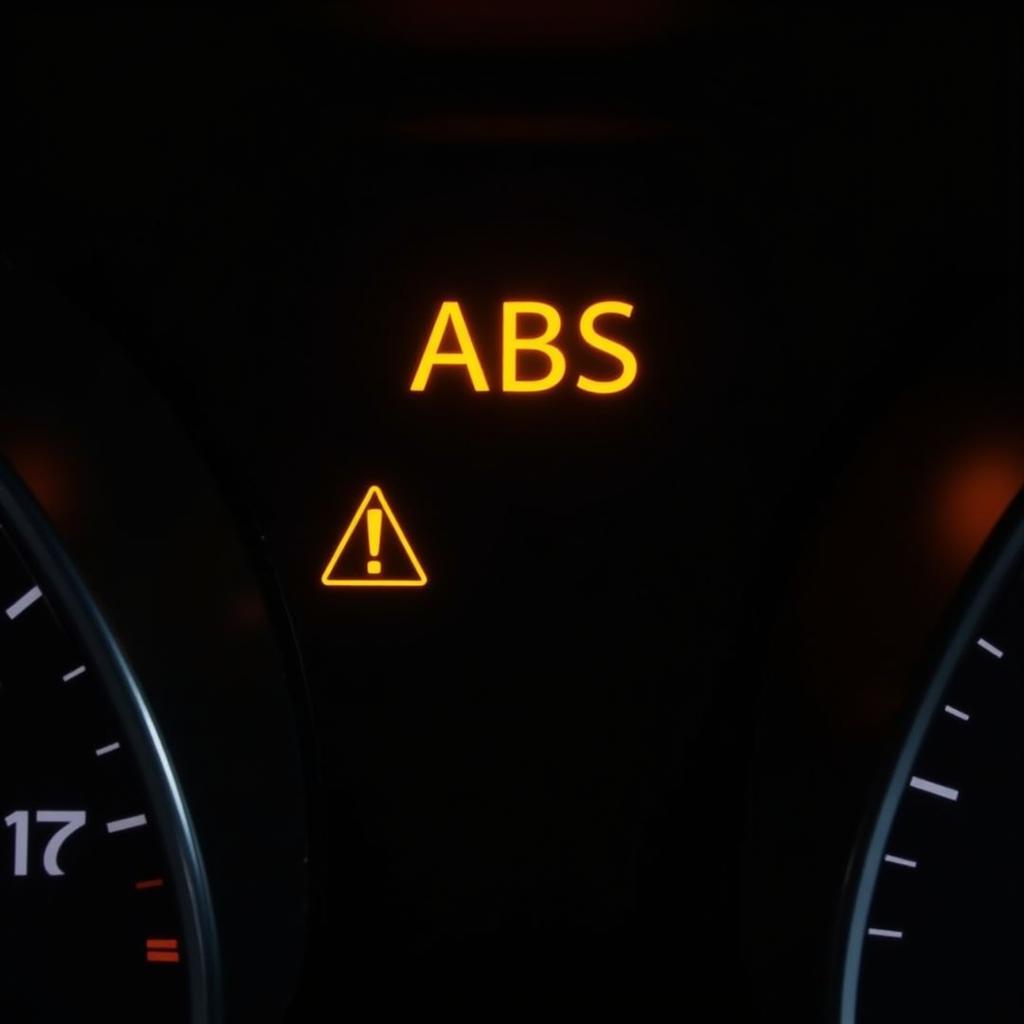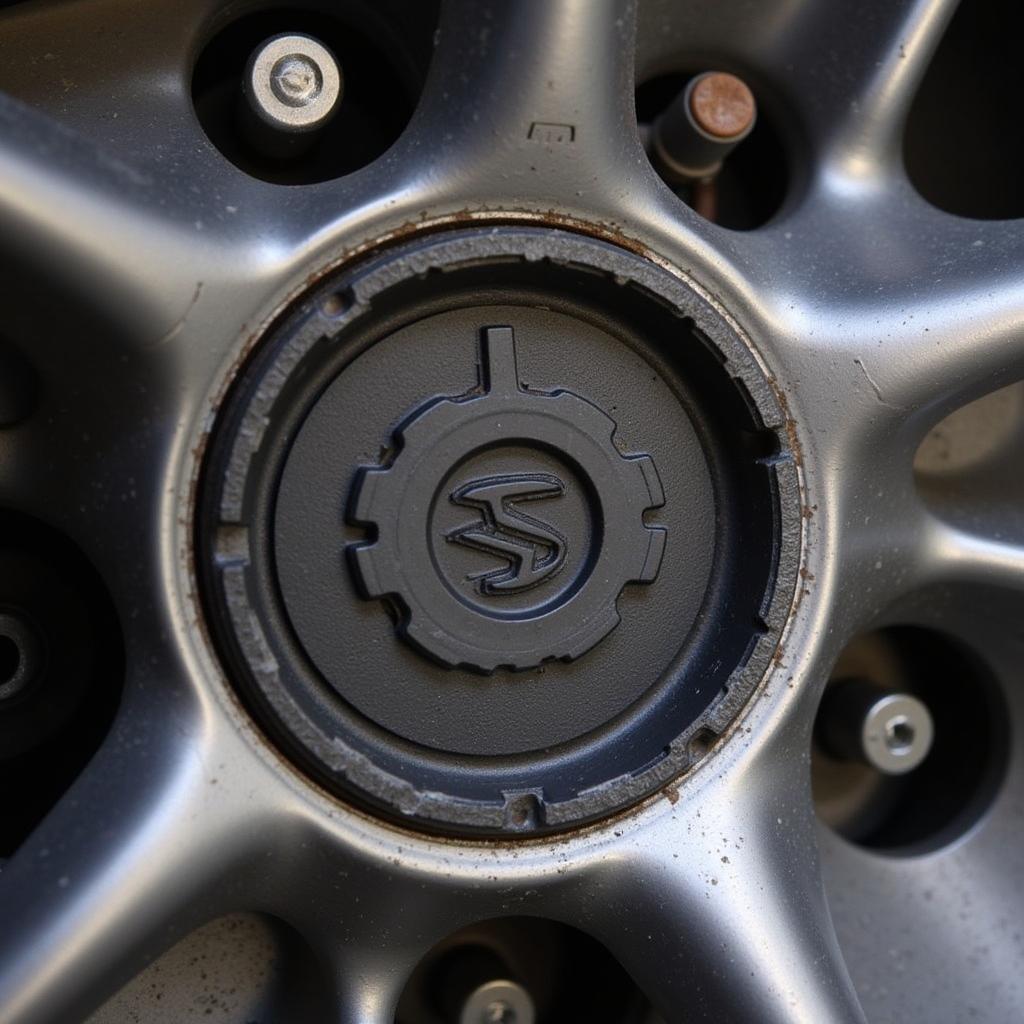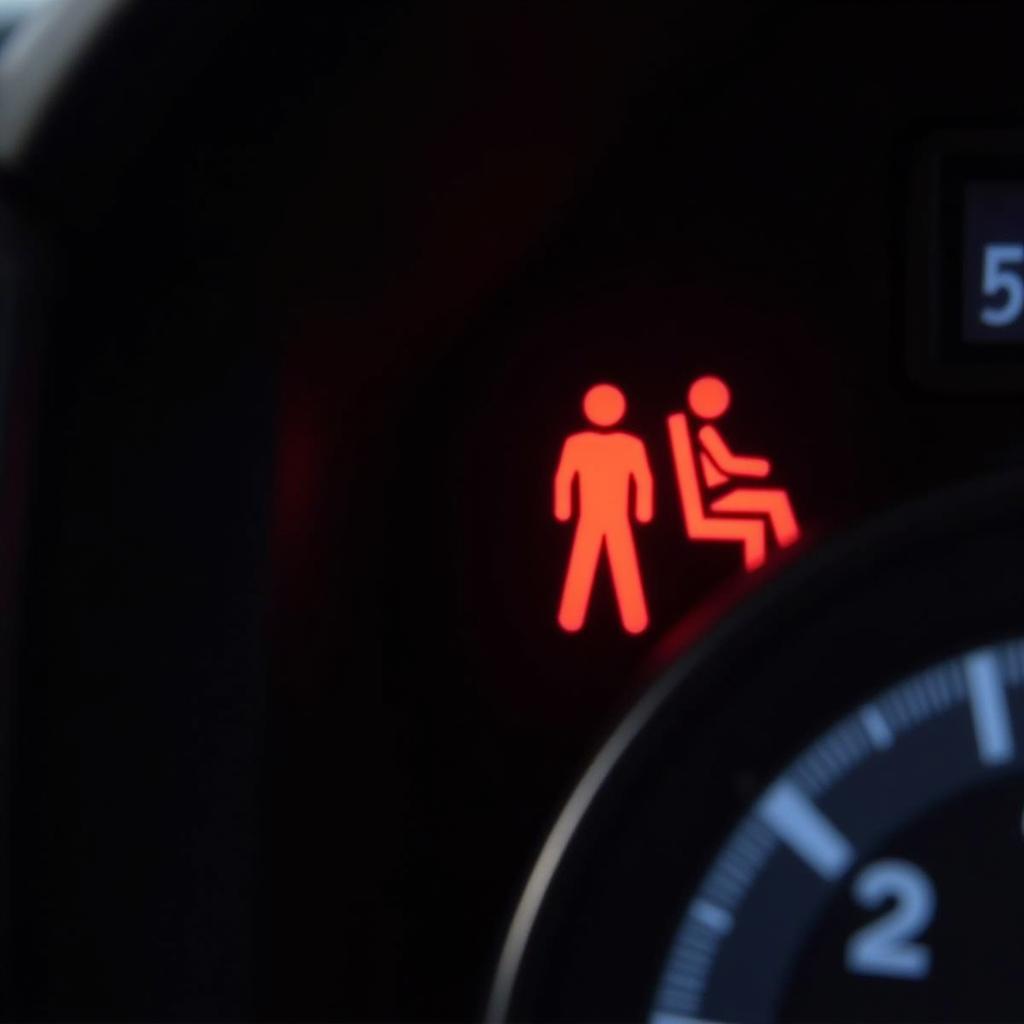The ABS warning light on your Seat Altea dashboard is a critical safety feature that shouldn’t be ignored. When illuminated, it indicates a potential issue with your Anti-lock Braking System (ABS), which helps prevent wheel lock-up during hard braking. This article will delve into the common causes of the Seat Altea ABS warning light and provide potential solutions to get you back on the road safely.
 Seat Altea ABS Warning Light on Dashboard
Seat Altea ABS Warning Light on Dashboard
Understanding the ABS System
Before we dive into the causes, it’s essential to understand how the ABS system works. The ABS system uses sensors at each wheel to monitor their speed. If one or more wheels begin to lock up during braking, the ABS control module automatically adjusts the brake pressure to that wheel, preventing it from skidding and maintaining control of your vehicle.
Common Causes of the Seat Altea ABS Warning Light
There are several reasons why the ABS warning light might illuminate on your Seat Altea. These range from relatively minor issues to more serious problems requiring immediate attention.
1. Faulty ABS Wheel Speed Sensors
One of the most common culprits is a faulty ABS wheel speed sensor. These sensors are exposed to the elements and can become damaged or dirty over time. A malfunctioning sensor can send incorrect signals to the ABS control module, triggering the warning light.
2. ABS Sensor Ring Issues
Each wheel also has an ABS sensor ring, a toothed ring that the sensor uses to detect wheel speed. If this ring is damaged or has accumulated excessive dirt or debris, it can disrupt the sensor’s reading, leading to the ABS warning light.
 Close-up of Seat Altea ABS Sensor Ring
Close-up of Seat Altea ABS Sensor Ring
3. Low Brake Fluid Level
The ABS system relies on adequate brake fluid pressure to function correctly. If your Seat Altea has a low brake fluid level, it can trigger the ABS warning light as well as the brake system warning light. This could indicate a brake fluid leak, which requires immediate attention.
4. Faulty ABS Control Module
The ABS control module is the brain of the system. It receives information from the wheel speed sensors and regulates brake pressure accordingly. While less common, a faulty ABS module can also cause the warning light to illuminate.
5. Blown Fuse or Electrical Problem
Like any other electrical system in your car, the ABS system relies on fuses and wiring. A blown fuse or a wiring problem can disrupt the flow of electricity to the ABS system, leading to a malfunction and triggering the warning light.
Diagnosing the Issue
Diagnosing the specific cause of the ABS warning light often requires specialized diagnostic equipment. A mechanic can retrieve fault codes from your Seat Altea’s onboard computer, providing valuable insights into the problem.
Potential Solutions
The solution to your ABS warning light problem depends entirely on the underlying cause. Here are some potential solutions:
-
Cleaning or Replacing ABS Sensors: If a faulty sensor is the culprit, cleaning it or replacing it might be necessary.
-
Inspecting and Replacing ABS Sensor Rings: Damaged sensor rings will need to be replaced to ensure proper ABS function.
-
Refilling Brake Fluid and Addressing Leaks: If low brake fluid is the issue, refilling it is crucial. However, it’s equally important to identify and repair any leaks in the brake system.
-
Testing and Replacing the ABS Control Module: A faulty ABS module might require testing and potential replacement, a task best handled by a qualified mechanic.
-
Checking and Replacing Fuses and Wiring: Inspecting the relevant fuses and wiring for damage or loose connections can help pinpoint electrical issues.
The Importance of Addressing ABS Warning Lights
Ignoring an ABS warning light can have serious safety implications. A malfunctioning ABS system can lead to:
-
Increased Stopping Distances: Without ABS, your wheels can lock up during hard braking, increasing the distance required to come to a complete stop.
-
Loss of Steering Control: Locked wheels result in loss of steering control, making it difficult to avoid obstacles.
-
Increased Risk of Accidents: The inability to control your vehicle’s braking and steering significantly increases the risk of accidents, especially in emergency situations.
Preventing Future ABS Problems
While some ABS issues are unavoidable due to wear and tear, you can take steps to minimize the likelihood of future problems:
-
Regular Brake Inspections: Schedule regular brake inspections with a qualified mechanic to catch potential issues early on.
-
Monitor Brake Fluid Levels: Periodically check your brake fluid level and top it off as needed.
-
Address Warning Lights Promptly: Never ignore any warning lights on your dashboard, especially those related to safety systems like ABS.
Conclusion
The ABS warning light on your Seat Altea is a crucial safety indicator that demands your attention. Ignoring it can have serious consequences for your safety and the safety of others on the road. By understanding the common causes, taking proactive measures to diagnose the problem, and addressing it promptly, you can ensure a safer driving experience and keep your Seat Altea in optimal condition. Don’t hesitate to seek professional help from a qualified mechanic for any ABS-related concerns.
FAQs
Can I still drive my Seat Altea with the ABS warning light on?
While you technically can still drive, it’s highly discouraged. Your regular brakes should still function, but you won’t have the added safety net of ABS.
How much does it cost to fix an ABS warning light on a Seat Altea?
The cost varies widely depending on the underlying cause. Sensor replacements can be relatively affordable, while a new ABS control module can be significantly more expensive.
Can I check the ABS system myself?
While you can check your brake fluid level, diagnosing ABS problems often requires specialized equipment and expertise.
Is the ABS warning light linked to other warning lights?
Yes, the ABS warning light can be linked to the brake system warning light, especially if the issue is related to low brake fluid.
How often should I have my Seat Altea’s ABS system checked?
It’s a good practice to have your ABS system inspected at least once a year or as part of your regular vehicle maintenance schedule.
If you are experiencing issues with your Seat Altea’s ESP warning light, you can find more information in our article about Seat Altea ESP warning light. You can also refer to our guide on Seat Altea warning symbols for a comprehensive understanding of your vehicle’s dashboard indicators. For those with an older model, you may find our resource on Seat Altea 2006 warning lights particularly helpful.

